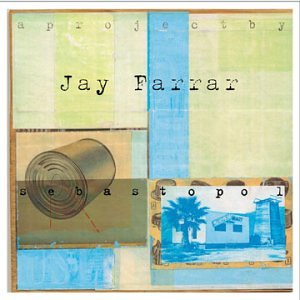
- Format: MP3

After the breakup of Uncle Tupelo, most fans would have guessed that Jay Farrar was a cinch for a brilliant solo career, but that hasn't quite been the case. While Trace, the first album from Farrar's post-Uncle Tupelo group, Son Volt, was a low-key masterpiece, the follow-up, Straightaways, sounded like he was treading water, offering up more of the same but without the same level of quality, and the songs simply weren't as interesting. Son Volt's third album, Wide Swing Tremolo, was a conscious effort to bring new colors to the band's sound, and while it was a decided improvement over Straightaways, it still paled in comparison to Trace or his better Uncle Tupelo work. In 2001, with Son Volt on hiatus (widespread rumor had it that the band had split up, though the group's representatives denied this), Jay Farrar cut his first proper solo album, Sebastopol, which seems to pick up where Wide Swing Tremolo left off. The arrangements move much of the focus away from Farrar's Neil Young-styled electric guitar, with keyboards and sampled horns and strings taking a prominent role in many of the tunes (though don't worry, Farrar's big fuzzy leads are still very much in evidence on "Clear Day Thunder," while "Outside The Door" shows he's still in touch with his acoustic, introspective side). The melodies are often brighter than on the Son Volt albums, and the blend of keyboards and acoustic guitars give the songs a more buoyant quality than one might expect ("Directions" sounds downright poppy), and Farrar injects a welcome sense of humor on "Barstow" and "Damn Shame." But, while Farrar has streamlined the chassis and thrown a new coat of paint on his music, Sebastopol proves the engine that drives his songwriting is still the same, and that's part of the problem. Without a strong collaborator, Farrar seems to have trouble finding new and different things to say, even while he's finding new and interesting ways to say them; Sebastopol sounds like a variation on the same themes he's been pursuing since Trace, and while it's probably his strongest album since Son Volt's debut, it also suggests he still isn't living up to his potential.